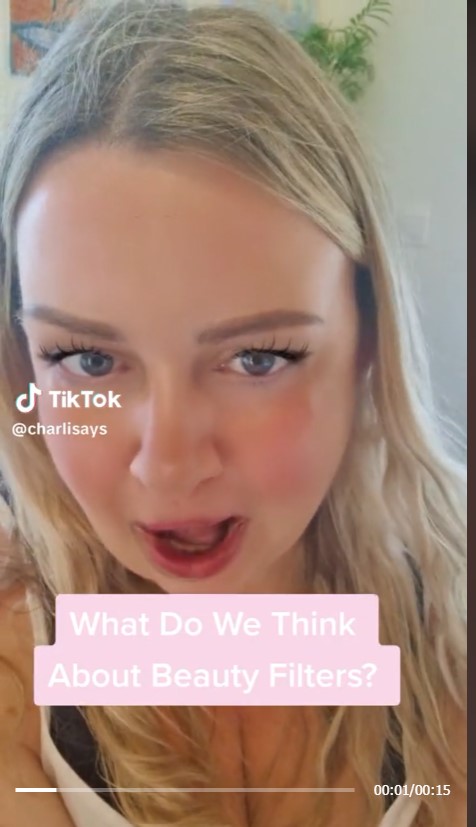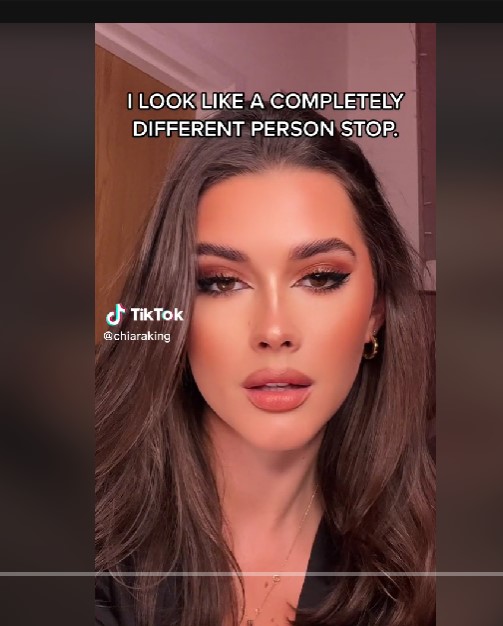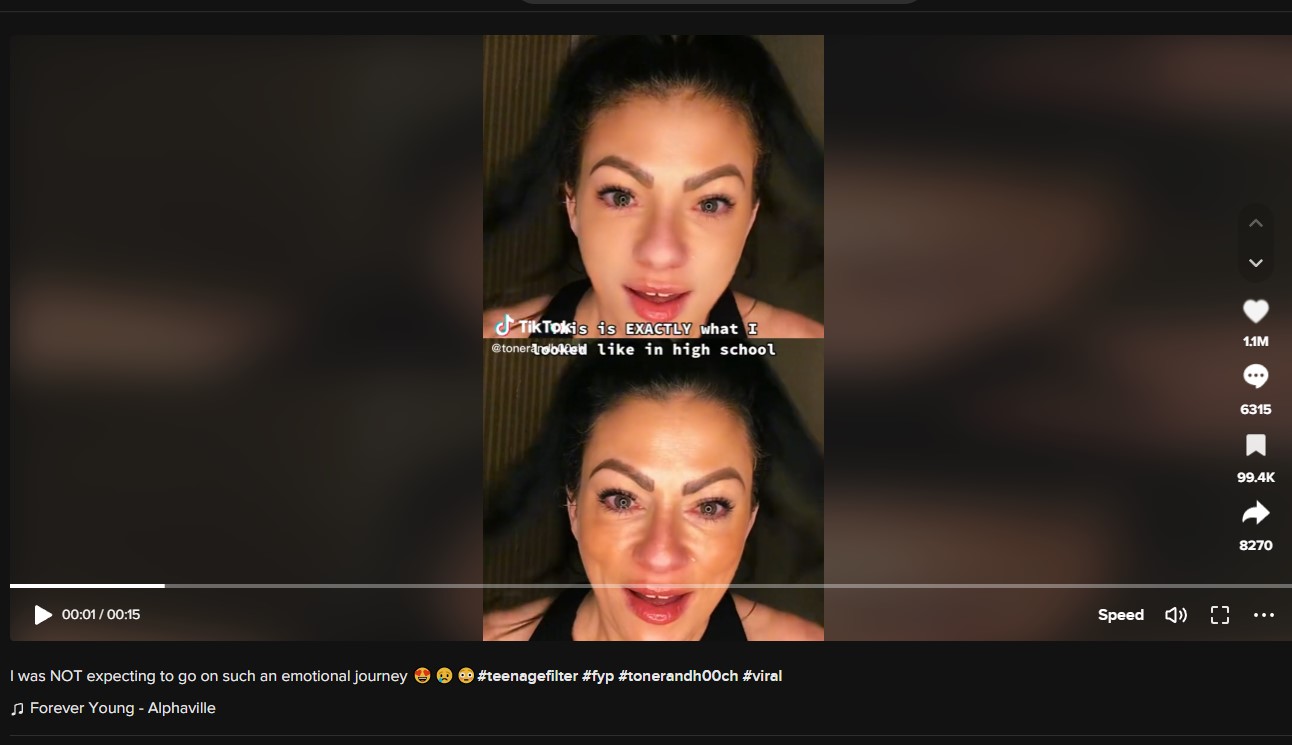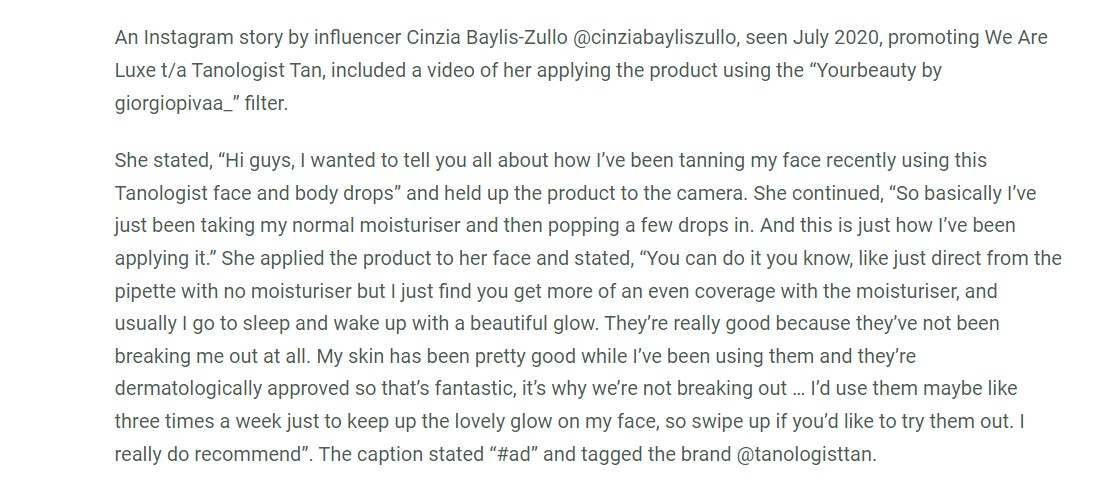First came selfies. Then came perfect selfies. Acne disappeared. Fine lines vanished. And the world became obsessed with perfection due to the launch of endless social media filters. Flawless beauty is now one of the world’s biggest trends. But are face and body altering filters just a bit of fun? How Damaging are Social Media Filters Really?
OMG, I’m So Pretty
Live, augmented reality filters on photo and video-based social media platforms including TikTok, Instagram and Snapchat aren’t new. But they have evolved from silly hats, puppy dog ears and comically enlarged features to include a wide range of beauty features that can make you feel ‘oh so pretty’ – if for just a second. As well as adding makeup, many of the popular filters that have crept into app libraries also change face proportions (generally to fit female, European beauty standards), creating thinner faces, smaller noses and plump lips.

Examples of beauty-enhanced filters being used today include:
- Beautiful Face by @yuka.kors – popular with teens, this app gives users a natural glow and super long lashes. It also highlights all of your best features making sure your next selfie is nothing but perfect.
- Make_Francesca by @francesca – this is a makeup filter that perfects your lashes, lips and lids. Struggle to apply eyeliner evenly? Then this filter will do it for you.
- Eyelash by Instagram – this popular filter on Instagram celebrates the perfect eyelash obsession that’s going on right now, allowing you to add big eyelashes to your face.
- Paris by Instagram – whether you upload a picture to your Instagram Feed or update your Story, you can choose from a wide range of filters including Paris. This irons out imperfections helping to create a smooth, flawless complexion. It can make you feel good and give you the confidence to post a selfie online. But are filters like this ruining our self-esteem? Many people are starting to think so.
Take a look at this post from U Beauty founder, Tina Chen Craig, highlighting the dangers of unrealistic beauty standards on social media and calling for Instagram to put disclosures on their Story filters. A before and after shot is a great way to highlight the filter in action. And Craig is not the only one drawing attention to unrealistic beauty standards.
Back to Reality – Are Filters Damaging?
Many social media users are worried about the mental health impact of using social media filters on a daily basis. TikTok’s brand-new ‘Bold Glamour’ filter, for instance, has been in the spotlight recently for its airbrushing qualities. Since its launch in February 2023, this filter has been used well over 17 million times, with people showing their extreme transformation and ‘movie star’ appearance. A glammed up reinterpretation of your face can include stronger eyebrows, chiselled cheekbones, plumper lips and other heightened features.
Popular TikTok users have been actively surprised by the app, with singing sensation and TikTok star, Chiara King, showing her 3.7 million followers what she looks like with and without the filter. While some users appear to be loving the trend, others have described it as a ‘confidence reducer,’ stating that taking off the app is ‘humbling.’

TikTok makeup artist, Katie Marble, also states how she feels ‘awful for young girls with access to these filters’ using hashtags such as #yikes and #why. She even goes so far as to say, “I knew I’d hurt my own feelings with this filter,” despite having spent many hours perfecting her own makeup before turning on the app. If someone with incredible makeup skills can have their confidence knocked, what does this mean for other girls who struggle daily to meet social beauty standards?
Dove Vs TikTok’s Bold Glamour Filter
Filters such as Bold Glamour have been slated in the media, with everyday people claiming they make you create a reality that doesn’t exist. Beauty brand, Dove, also has huge issues with the filter. Dove has called on its global community to #TurnYourBack on the Bold Glamour filter as part of its ongoing commitment to #NoDigitalDistortion in any of its advertising or marketing. The social movement encourages everyone from content creators to everyday social media users to create their own content hijacking the #BoldGlamour hashtag, so that searches for the filter are flooded with people educating on the dangers of extreme filters. Campaign content from Dove uses statistics to highlight the importance of taking a stand. For example, this TikTok video explains how:
- 80% of girls are already using filters by the age of 13.
- 54% of girls prefer the way they look when photos are edited.
This also links with other worrying statistics such as:
- 1 in 4 teens don’t think they look good enough without photo editing.
- 1 in 2 girls says idealised beauty content on social media gives them low self-esteem.
- 7 in 10 girls have felt better after unfollowing idealised beauty content on social media.
- Girls take an average of 14 selfies, just to find one good enough for social media.
- More than 1,000,000 girls in the UK have low body confidence, with 6 in 10 feeling their prettiest online with the use of filters contributing to this.
Dove has also launched a #DetoxYourFeed campaign, encouraging young people to unfollow content that makes them feel bad. Dove’s #ReverseSelfie content supports the idea that filters can have a negative impact on self-esteem.
The brand’s efforts to fight against filters from social media giants like TikTok have been supported by many influencers including body-confidence promoter and former eating disorder sufferer, Alex Light. In a TikTok video of her using the filter she states:
Filters like this create a brand-new and unrealistic comparison that blurs the lines of reality and sets a new standard for how we think we should look. It’s vital that we push back against these increasingly toxic beauty standards and show young girls that it’s OK to be their authentic, beautiful selves.
TikTok’s Teenage Look Filter
Another somewhat controversial filter trending at the moment is TikTok’s Teenage Look filter. Well over 900,000 TikTok videos have showcased users turning themselves into their teenage selves, with Marla Toner telling her 536k+ followers how she wasn’t expecting to go on ‘such an emotional journey’ back to her youth. While some have found the filter nostalgic and have enjoyed going down memory lane, others have been ‘triggered,’ forced into remembering negative experiences from their childhood.

What Are the Regulators Saying?
Filter usage is off the charts. Yet concerns about beauty-altering filters in particular are huge. So what are the regulators saying? Well interestingly, many countries have recently introduced (or are trying to introduce) new legislation that helps protect social media users. Here’s a quick rundown of what’s been going on:
Norway
Norway made headlines in 2021 after making it illegal for influencers and advertisers alike to share promotional photos online without disclosing whether the images have been retouched in any way. This saw an amendment to the 2009 Marketing and Control Act and passed in Stortinget, Norway’s parliamentary body, with a majority vote of 72-15.
France
The French parliament’s lower chamber recently passed a bill that aims to ban influencers from promoting cosmetic surgery on social media while making it mandatory for them to label the images when filters or photoshop has been used. The National Assembly voted on the cross-party bill that will now move to the Senate where it is expected to be adopted without much opposition. According to French Finance Minister Bruno Le Maire, failure to comply with the strict regulations could result in two years of jail and $32,515 (€30,000) in fines. Moreover, convicted influencers will not be allowed to use social media to continue their career. La Maire stated very clearly that influencers must be accountable for their actions as the internet is not the ‘Wild West.’
The UK
Meanwhile in the UK, social media influencers have been told they can no longer use ‘misleading’ filters on beauty adverts. The rules set by the UK’s Advertising Standards Authority (ASA) state that filters should not be used if they ‘exaggerate the effect of a cosmetic or skincare’ product being sold on the platform. The new legislation was a direct response to the #filterdrop campaign started by influencer Sasha Pallari. This called for brands and influencers to disclose whether or not they were using filters on cosmetic products they were advertising.
Recently, ASA considered the use of social media filters by We Are Luxe in assoc. with Cinzia Baylis-Zullo and Skinny Tan in assoc. with Elly Norris to be misleading as they exaggerated the potential results of the products being advertised.

On a similar note, The Body Image Bill was introduced in UK Parliament by Dr. Luke Evans MP in January 2022. Its purpose is to call for commercial images featuring digitally altered bodies to be labelled clearly, therefore letting the public know that they are not viewing the true image. Dr Evans maintains that edited commercial images of the human body do not represent reality and are helping to perpetuate a warped sense of how we appear, with real consequences for people suffering with body confidence issues. He says that as a GP he has seen this first hand.
Dr Luke Evans wants the law to require a disclaimer to be added to any filtered or digitally altered photos in the form of a ‘P’ logo. Dr Evans says “Quite simply, if someone is being paid to post a picture on social media which they have edited, or if advertisers, broadcasters or publishers are making money from an edited photograph in any form, they should be honest and upfront about having edited it.”
Can We Still Have Fun with Filters?
There are loads of filters out there that aren’t necessarily beauty related. For example, Instagram’s Cartoon filter could be fun for kids who want to see what their face looks like as an animation. Similarly, many brands use Vintage and Retro filters to give their images and photos a more oldy-worldy look without actually tweaking someone’s physical appearance. Filters that turn pictures into paintings play around with colour and tone rather than the way someone looks too. The same applies to Drawing filters and Black and White filters.
What do you think? Are all social media filters damaging? Is it right to have laws in place around the use of beauty filters?